July 4th was rocked by another horrific attack by a lone gunman on a crowd of innocent people in Highland Park, Illinois. The tragic event, where the attacker murdered seven and injured dozens more, came shortly after similar attacks at Robb Elementary School in Uvalde, Texas, and Topps Grocery Store in Buffalo, New York. It also came after the federal government passed its first new gun restrictions in decades and in a location with some of the strictest gun laws in the nation.
That combination of factors has led prominent Democrats from the President on down to call for further restrictions. But it has also created an atmosphere where Republicans are unwilling to do a new bill, and Democrats don’t appear to be making any effort to craft another potentially bipartisan reform effort.
So, to the relief of gun-rights activists and the dismay of those on the other side, Congress appears to be back at the crossroads it has traditionally faced on gun policy.
That doesn’t mean things are deadlocked elsewhere. Far from it.
The fallout from the Supreme Court’s decision to strike down New York’s restrictive gun-carry permitting process rained down at an increased pace. New York doubled down on its attempts to keep most qualified people from being legally able to obtain a permit or carry in most places, thus setting up another showdown with the Court. Maryland, on the other hand, took the opposite approach with Governor Larry Hogan (R.) instructing state officials to drop the state’s subjective “good reason” clause and begin issuing permits to those who completed the required training and background check.
Contributing Writer Jake Fogleman also details how California’s leak of gun owners’ private information underscores one of the major reasons many gun owners opposed registries. It’s not just fear of confiscation that critics take issue with.
Plus, Jake Fogleman and I do our best on this week’s podcast to answer all the most pressing gun questions from a month of non-stop gun news.
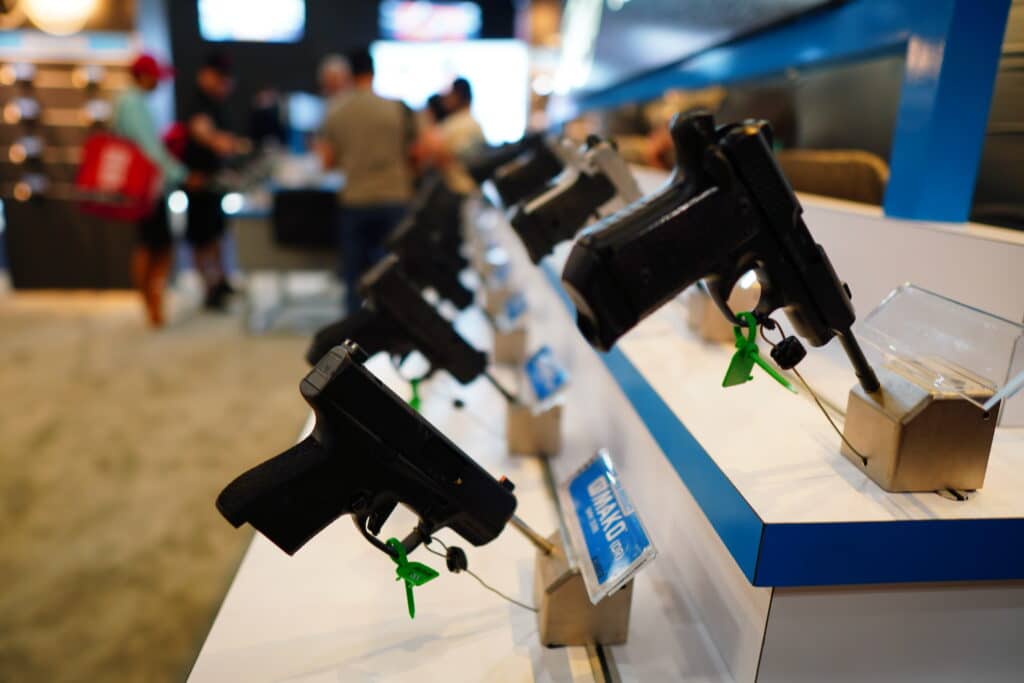
Cornyn Says No to New Gun Bill
By Stephen Gutowski
“Not gonna happen.”
That’s what Senator John Cornyn (R., Texas) told The Reload on Wednesday about prospects for another gun bill. His Democratic colleagues have been pushing for further restrictions in the wake of the Highland Park shooting, including his main negotiating partner in last month’s successful bipartisan gun talks.
“We have now broken the back of the gun lobby,” Senator Chris Murphy (D., Mass.) said in a video on Monday. “We now have made possible changes in our gun laws that can keep our communities safer. Today is a reminder that we still have a long road to travel.”
But Cornyn is not interested in pursuing expansions to the gun law President Joe Biden signed into law just over a week ago. The other 14 Senate Republicans who voted for the gun deal don’t seem interested either.
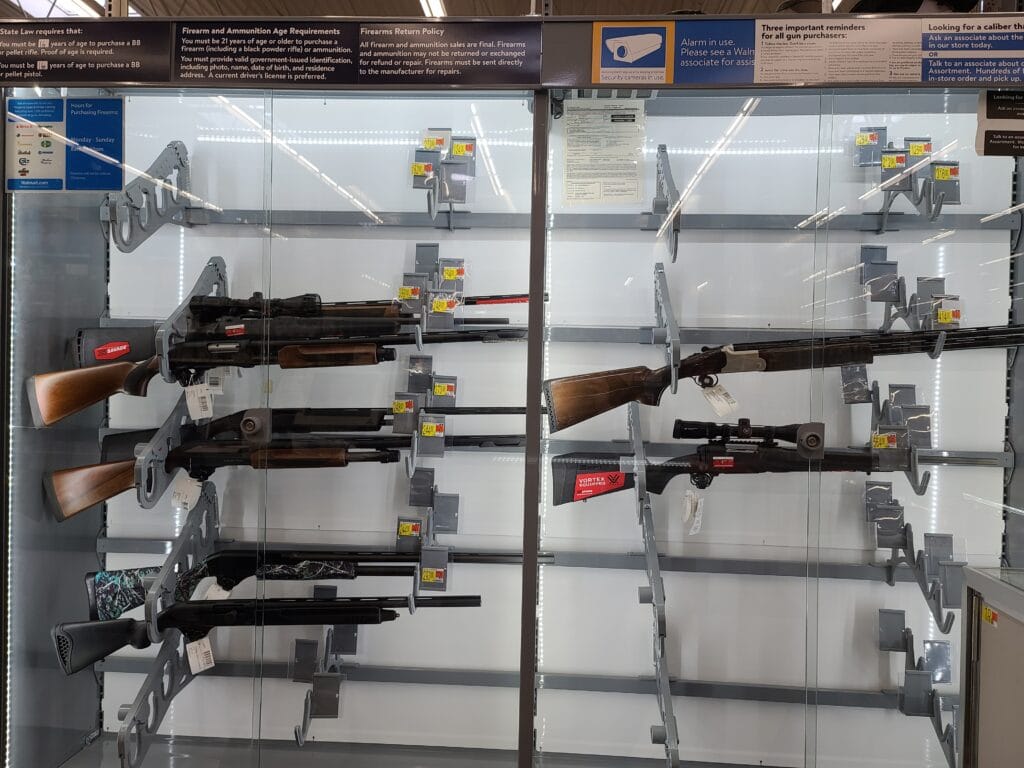
Democrats Deem New Federal Gun Law Insufficient After July 4th Shooting
By Erik Eva
The attack in Highland Park, Illinois, on Monday prompted Democratic leaders to double down on the idea restrictions included in the recent bipartisan federal gun deal are not enough.
On Monday, a shooter opened fire on an Independence Day parade from a rooftop, leaving six dead and 30 wounded. Democrats at the state and federal levels have responded with renewed calls for new gun restrictions beyond the measures that just became law.
“I recently signed the first major bipartisan gun reform legislation in almost thirty years into law, which includes actions that will save lives,” President Joe Biden said in a statement on Monday. “But there is much more work to do, and I’m not going to give up fighting the epidemic of gun violence.”
Click here to continue reading.
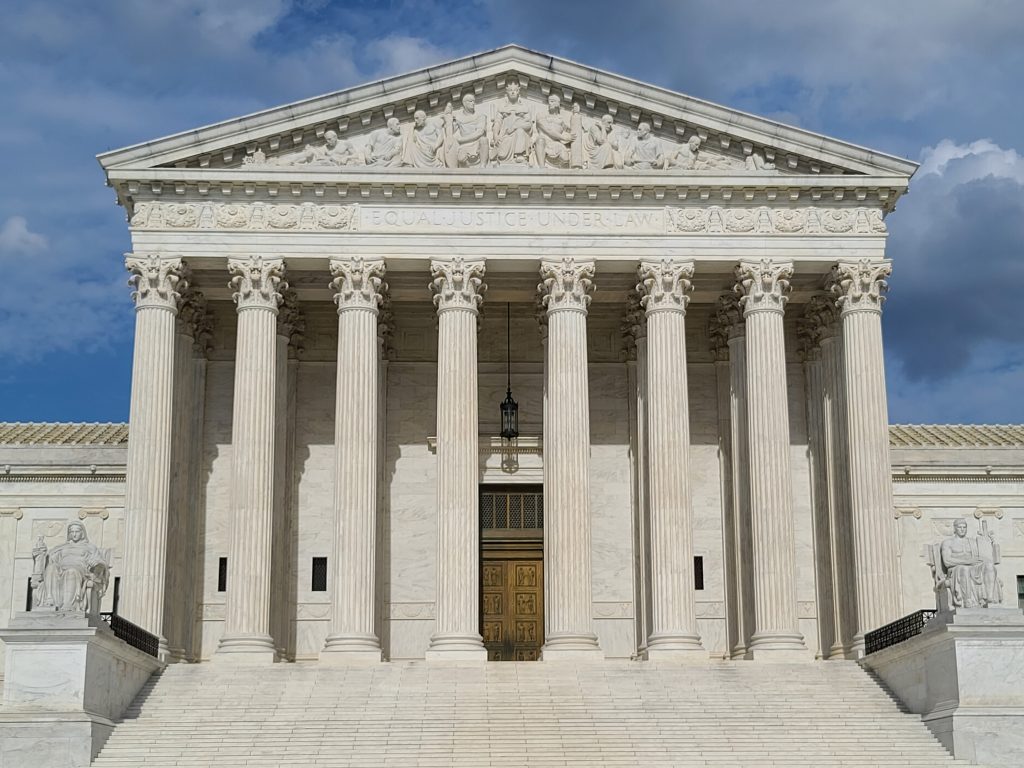
Analysis: New York Tells Supreme Court’ Thank You, Sir. May I Have Another?’ [Member Exclusive]
By Stephen Gutowski
New York has made a return appointment for Constitutional scrutiny of their gun-carry laws.
Almost immediately after the Supreme Court struck down the state’s previous law over the subjective nature of its “proper cause” clause, New York is back with a beefed-up and even more subjective “good moral character” clause. In addition to requiring multiple references, the newly-passed standard for issuing gun-carry permits includes a social media review. Instead of relying on objective standards, such as an applicant’s record of convictions or mental health commitments, the state is doubling down on the subjective judgment of its permitting officials.
Instead of judging whether somebody has “proper cause” to carry a gun based on specific threats to their life, state officials will now judge whether or not they are of “good moral character” based on their tweets and Facebook posts. It’s difficult to see how the outcome will be any different.
It’s difficult to see how the legal fight will be any different either. Except, perhaps, how quickly New York loses.
If you’re already a member, click here to read the rest. If not, consider joining for exclusive access!
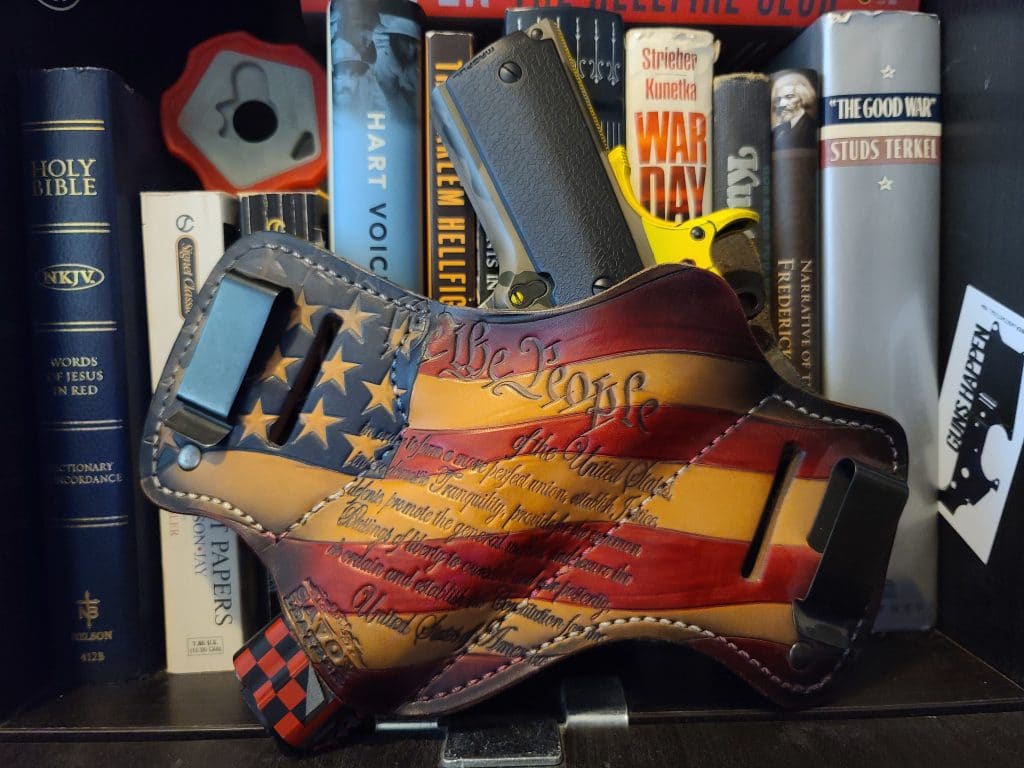
Maryland Governor Ends Subjective ‘Good Reason’ Standard for Gun-Carry Permits
By Stephen Gutowski
More Marylanders will soon be able to legally carry concealed firearms for protection.
Maryland Governor Larry Hogan (R.) announced on Tuesday he would abide by a recent Supreme Court ruling and do away with the subjective “good and substantial reason” clause in the state’s gun-carry permitting process. The change will make it easier for qualified applicants to obtain concealed carry permits. It is a direct response to the Court striking down a similar provision in New York’s carry law as unconstitutional.
“Last month, the U.S. Supreme Court struck down a provision in New York law pertaining to handgun permitting that is virtually indistinguishable from Maryland law. In light of the ruling and to ensure compliance with the Constitution, I am directing the Maryland State Police to immediately suspend utilization of the ‘good and substantial reason’ standard when reviewing applications for Wear and Carry Permits,” Hogan said in a press release. “It would be unconstitutional to continue enforcing this provision in state law.”
Click here to read the full story.
Podcast: A Q&A On the Supreme Court Gun Decision, New Federal Gun Law, and ATF Regulations
By Stephen Gutowski
Contributing Writer Jake Fogleman and I took submissions from Reload Members on their most pressing concerns. We got questions on everything from how the ruling in New York State Rifle & Pistol Association v. Bruen affects the other pending gun cases before the Court to how stable the new standard set in the case really is. We talked about whether Bruen presents a risk to the new federal gun law and the details of the new law’s gun provisions.
We also covered the impact of not just Bruen but also the Court’s ruling in a recent EPA case on a variety of ATF regulations.
You can listen to the full episode on your favorite podcasting app or by clicking here.
Video of the show is also available on our YouTube channel.
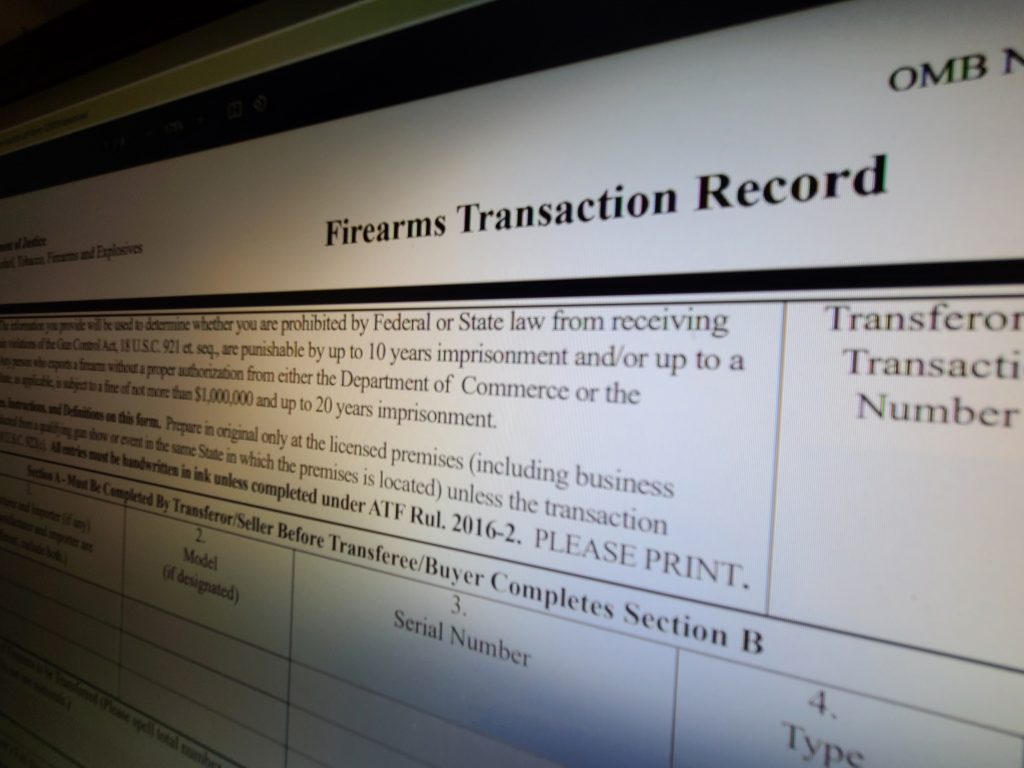
Analysis: The California Data Leak Vindicates Gun Owner Registry Fears [Member Exclusive]
By Jake Fogleman
The government of California and gun-rights advocates have long had a bit of a tenuous relationship. But following an egregious new data leak, the state may have unintentionally vindicated the concerns of many gun owners in the state and across the country.
The Reload confirmed on Tuesday that the personal identifying information of thousands of the state’s concealed-carry permit holders was exposed when the state rolled out its 2022 Firearms Dashboard Portal. But Attorney General Rob Bonta (D.) later revealed that the leak was in fact far worse. Beyond private data on permit holders statewide, data from the state’s “assault weapons” registry and dealer records of sale were also leaked, as well as information on gun violence restraining orders, the state’s handgun roster, and firearms safety certificates.
The personal data, which was eventually removed, included details like name, race, address, date of birth, and the type of permit issued–which indicated if a holder was a police officer or judge.
“This unauthorized release of personal information is unacceptable and falls far short of my expectations for this department,” Attorney General Bonta said. “I immediately launched an investigation into how this occurred at the California Department of Justice and will take strong corrective measures where necessary.”
While a swift investigation into the leak is indeed warranted, gun owners will take little solace in the Attorney General’s statement. That’s because such data was only available to be leaked due to the unparalleled requirements California imposes on record keeping, information sharing, and registration for gun owners in the state.
If you’re already a member, click here to read the rest. If not, consider joining today for exclusive access!
Outside The Reload
Gun control group announces $10M for battleground state races | Politico | By Marianne Levine
New Jersey Gov. Phil Murphy signs sweeping gun bills into law | ABC News | By Teddy Grant
Paul Clement joins challenge to New York law allowing gun lawsuits | Reuters | By Nate Raymond
House committee calls CEOs of gun manufacturers to testify | Washington Post | By Jacqueline Alemany
The ATF Can’t Write New Gun Laws | National Review | By Kevin D. Williamson
That’s it for this week in guns.
I’ll see you all next week.
Thanks,
Stephen Gutowski
Founder
The Reload






